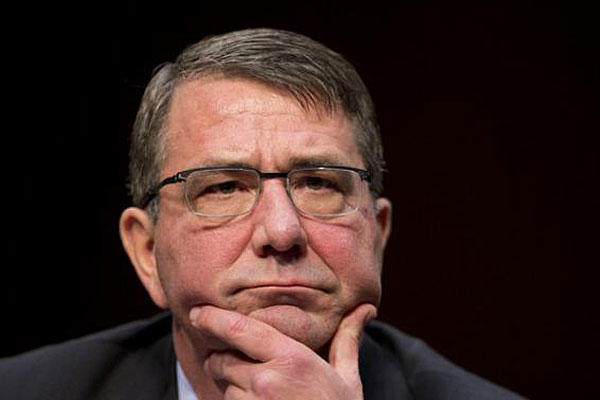U.S. Defense Secretary Ashton Carter will go to Israel next week to smooth over relations with Israel after Prime Minister Benjamin Netanyahu has strongly opposed the nuclear deal made with Iran.
Carter was also expected to visit the Gulf states in a similar effort to ease the Sunni regimes' concerns about Tehran's anticipated growth in the region.
The Pentagon announced Carter's trip shortly after the announcement Tuesday that the U.S. and its partners, including Russia and China, had reached a controversial agreement to rein in Iran's nuclear programs in exchange for lifting economic sanctions worth billions to Iran.
The agreement hailed as a historic document that could avert another Mideast war by President Obama was immediately labeled a "stunning historic mistake" by Netanyahu, who signaled that he would be using his influence to rally opposition in Congress to the deal.
Related Video
![]()
In a statement after the Iran deal was signed, Carter said that his Middle East trip was intended to "check Iranian malign influence" in the region, and added that "We remain prepared and postured to bolster the security of our friends and allies in the region, including Israel" with increased arms support.
Despite the agreement with Iran, the U.S. military stood ready to promote U.S. interests in the region and check Iran's support for terror groups. "We will utilize the military option if necessary," Carter said in his statement.
In anticipation that an Iran agreement would be reached, the Obama administration proposed in May, and Congress authorized, a $1.9 billion arms package for Israel.
The package included 3,000 Hellfire missiles, 250 AIM-120C advanced medium range air-to-air missiles and 50 BLU-113 "bunker-buster" bombs of about 5,000 pounds each.
The U.S. has thus far declined to provide Israel with the GBU-57, 30,000-pound bunker-buster bomb, known as the Massive Ordnance Penetrators, or MOPs, the world's largest non-nuclear weapon.
The MOPs were specifically designed to destroy underground facilities such as Iran's Fordow uranium enrichment plant.
When asked recently on CNN whether the MOP could take out Fordow, Carter said "Yes. That's what it was designed to do."
In 2013, then-Defense Secretary Chuck Hagel announced in a speech to the Anti-Defamation League that Israel also would be getting six V-22 Ospreys, but the deal for the tilt-rotor aircraft has been on hold over financing.
Related Video
Osprey Evolution
According to the Congressional Research Service, the U.S. has provided Israel with more than $120 billion in military assistance since direct aid began in 1962. In recent years, U.S. military assistance to Israel has averaged about $3 billion annually.
At a Camp David summit in May, Obama also pledged accelerated arms deliveries to the Gulf states and proposed developing a regional missile defense system among them.
Israel has also been seeking additional help from the U.S. on missile defense and has on order more than 30 of the new F-35 Joint Strike Fighters.
Carter's task in easing Israel's concerns could have been made more difficult by remarks in parliament Tuesday by British Foreign Minister Philip Hammond, who will precede Carter in Tel Aviv later this week.
Hammond said "The question you have to ask yourself is what kind of a deal would have been welcomed in Tel Aviv? The answer, of course, is that Israel doesn't want any deal with Iran" which would remove a threat and alter the political balance in the region.
"Israel wants a permanent state of stand-off and I don't believe that's in the interest of the region, I don't believe it's in our interest," Hammond said.
At a news conference Wednesday in the White House East Room, Obama referred several times to Netanyahu in defending the deal with Iran while acknowledging that Republicans in Congress would likely vote against it.
"I'm not betting on the Republican party rallying behind this agreement," Obama said.
Initial polls showed support for the broader goals of the agreement and deep doubts that Iran would abide by the terms. According to a Monmouth University survey Tuesday, about 55 percent of Americans think that Iran will try to cheat on the agreement.
At his news conference, Obama said he was well aware that Iran has stated that "Israel shouldn't exist, has denied the Holocaust, and has missiles pointed at Tel Aviv. There are very good reasons why Israelis should be nervous."
"What I've also said is that all those threats are compounded if Iran gets a nuclear weapon," Obama said. "For all the objections of Prime Minister Netanyahu," and the Congressional Republicans, "none of them has presented to me and the American people a better alternative."
-- Richard Sisk can be reached at richard.sisk@military.com






























